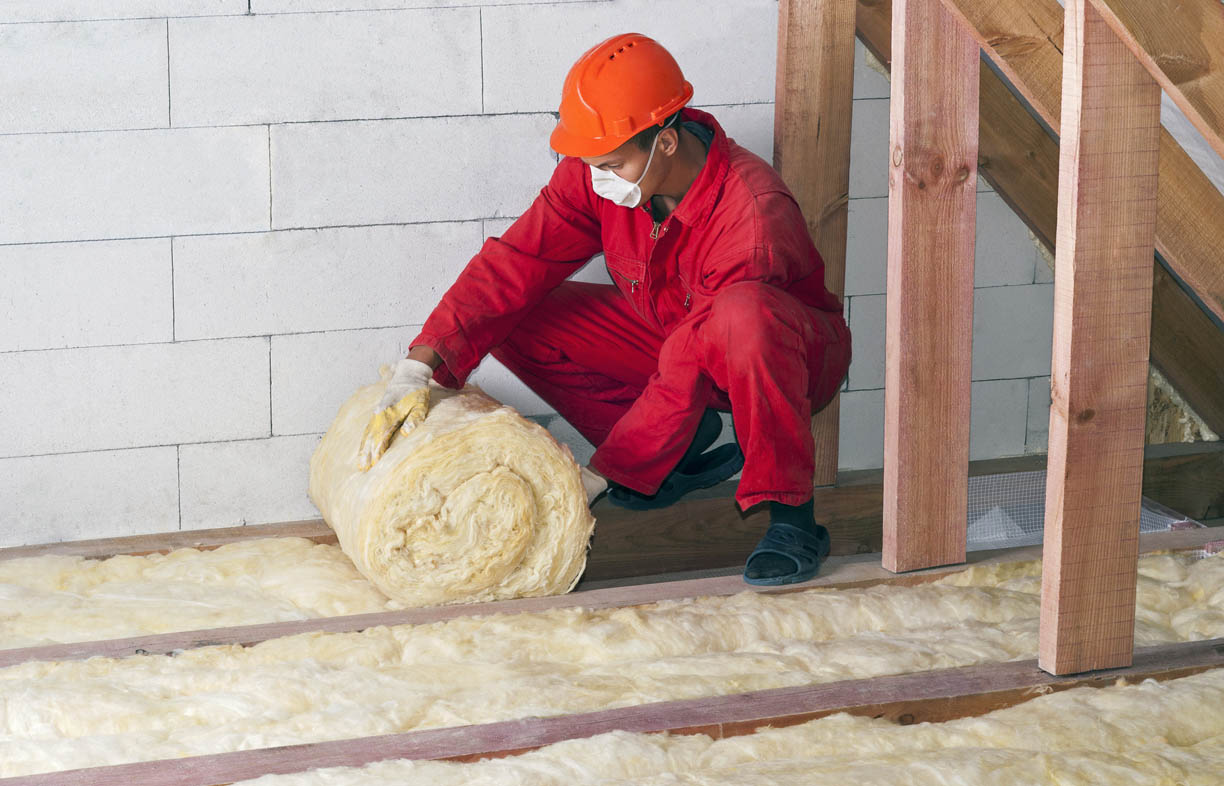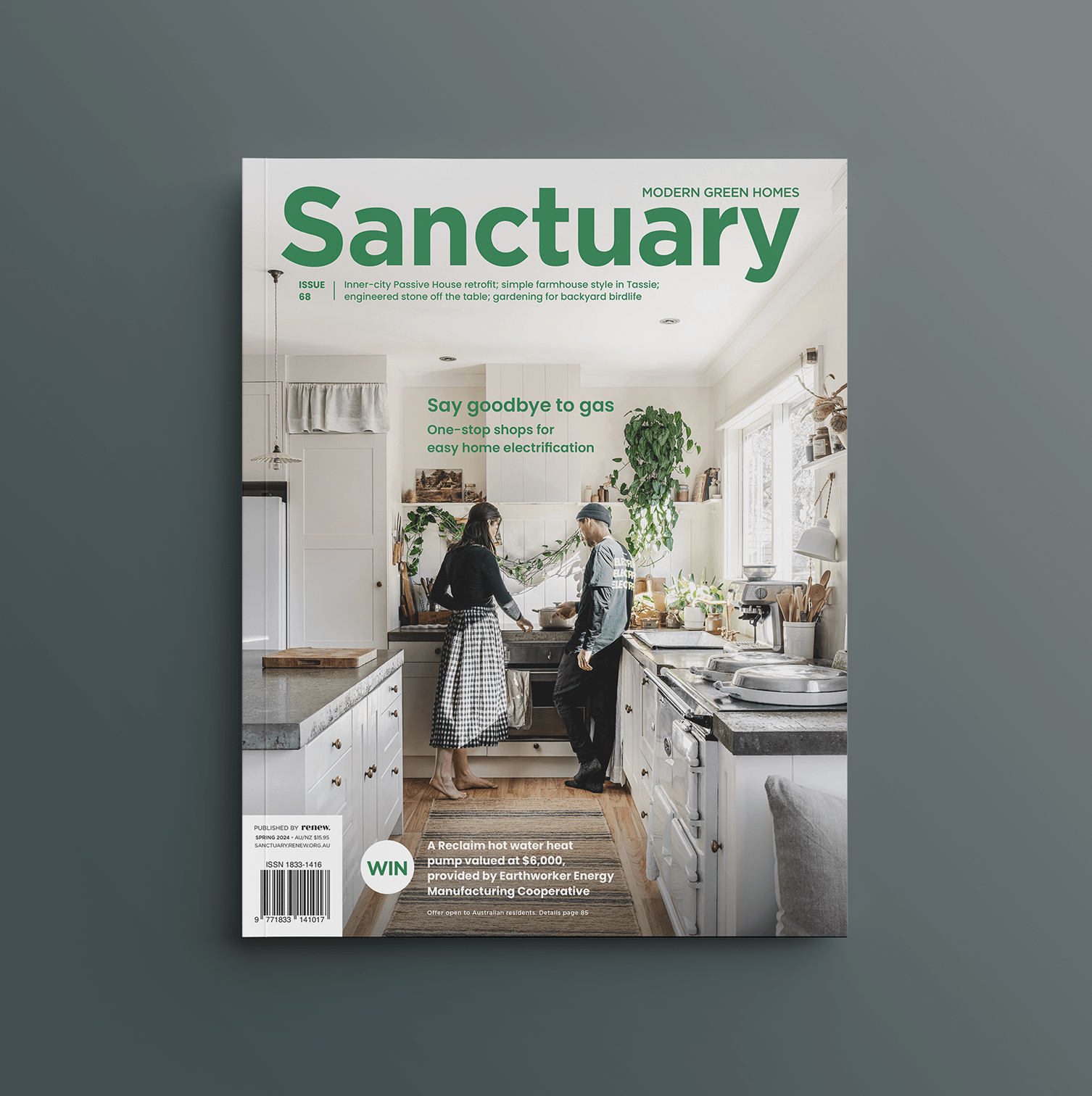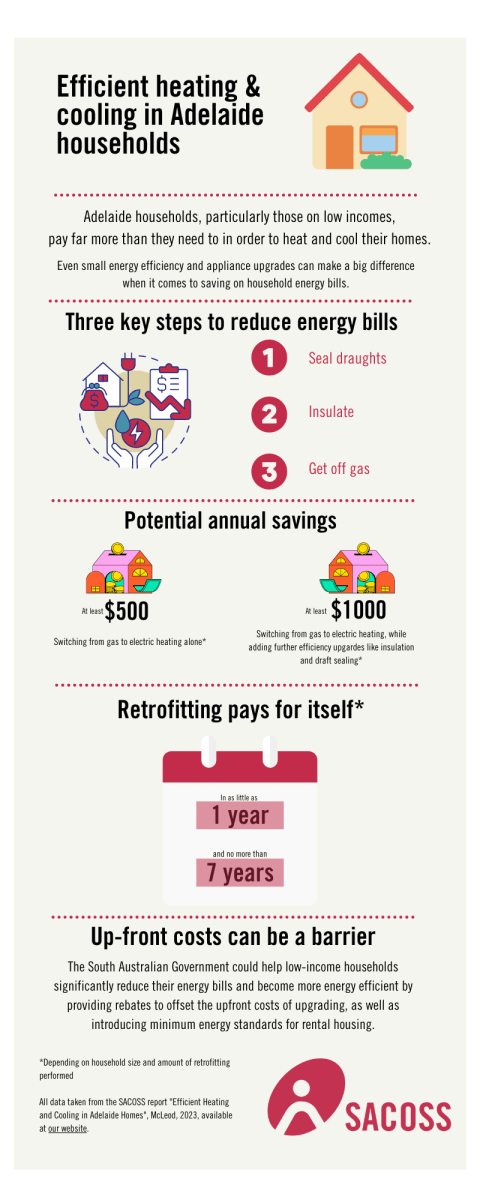Adelaide households paying too much to heat and cool homes

Adelaide households are paying far more than they need to heat and cool their homes, according to new research by Renew commissioned by the South Australia Council of Social Service.
The research compares different heating and cooling options for different-sized Adelaide households, as well comparing energy costs paid before and after the 1 July increase of 23.9% in the Default Market Officer tariffs.
The report‘s findings highlight the impact even small-scale energy efficient retrofit and appliance upgrades can make to household bills and the environment, including:
- For a two-bedroom duplex, simply switching from gas to electric heating saves $556.5 per year; for a three-bedroom detached home, the equivalent switch saves $464.8 per year
- Switching from gas to reverse cycle air conditioning (RCAC) and adding other energy measures such as ceiling insulation, draught sealing and blinds would save $1261.9 for a two-bedroom duplex and $1072.4 for a three-bedroom detached household annually
- Installing RCAC to simply replace gas heating would pay for itself in 7.4 years in a two-bedroom duplex, and in 3.8 years if a full range of energy efficiency measures were installed; for a three-bedroom detached household the equivalent timeframes are 6.8 and 5.1 years respectively
- Switching to RCAC with a full range of energy efficiency measures would reduce annual C02 emissions by 1377.5kg for a two-bedroom duplex and by 1172.8kg for a three-bedroom detached house
Quotes attributable to SACOSS CEO Ross Womersley
“This report makes clear that Adelaide households – particularly those on low incomes – are paying far more than they need to to heat and cool their homes.
“To be clear, this is largely through no fault of their own as appliance upgrades and energy efficiency retrofits can be costly upfront. This report demonstrates that for low income households, the South Australian Government could provide significant and ongoing energy bill relief. The Government could do this by by funding and implementing policies that would enable more people to make these changes in their homes.
“One-off ‘sugar hit’ energy bill relief payments might provide temporary relief, but these are short-term solutions that don’t address underlying fundamental problems.
“Getting off gas, especially if this is done alongside basic energy efficiency retrofits such as ceiling insulation and draught sealing, can save households hundreds of dollars each year and will pay for itself over a relatively short period – especially if there is government funding and support to help households afford these retrofits.
“It should be a no-brainer for Government: this report shows a clear case for stepping up, creating and funding policies that would enable more South Australians – particularly those on low incomes and renters – to make these upgrades in their homes.
“Such decision-making would not only reduce household bills, but would also reduce carbon emissions and the pressure on the electricity grid.”
Read the full report here, and read more at the South Australian Council of Social Service website.


